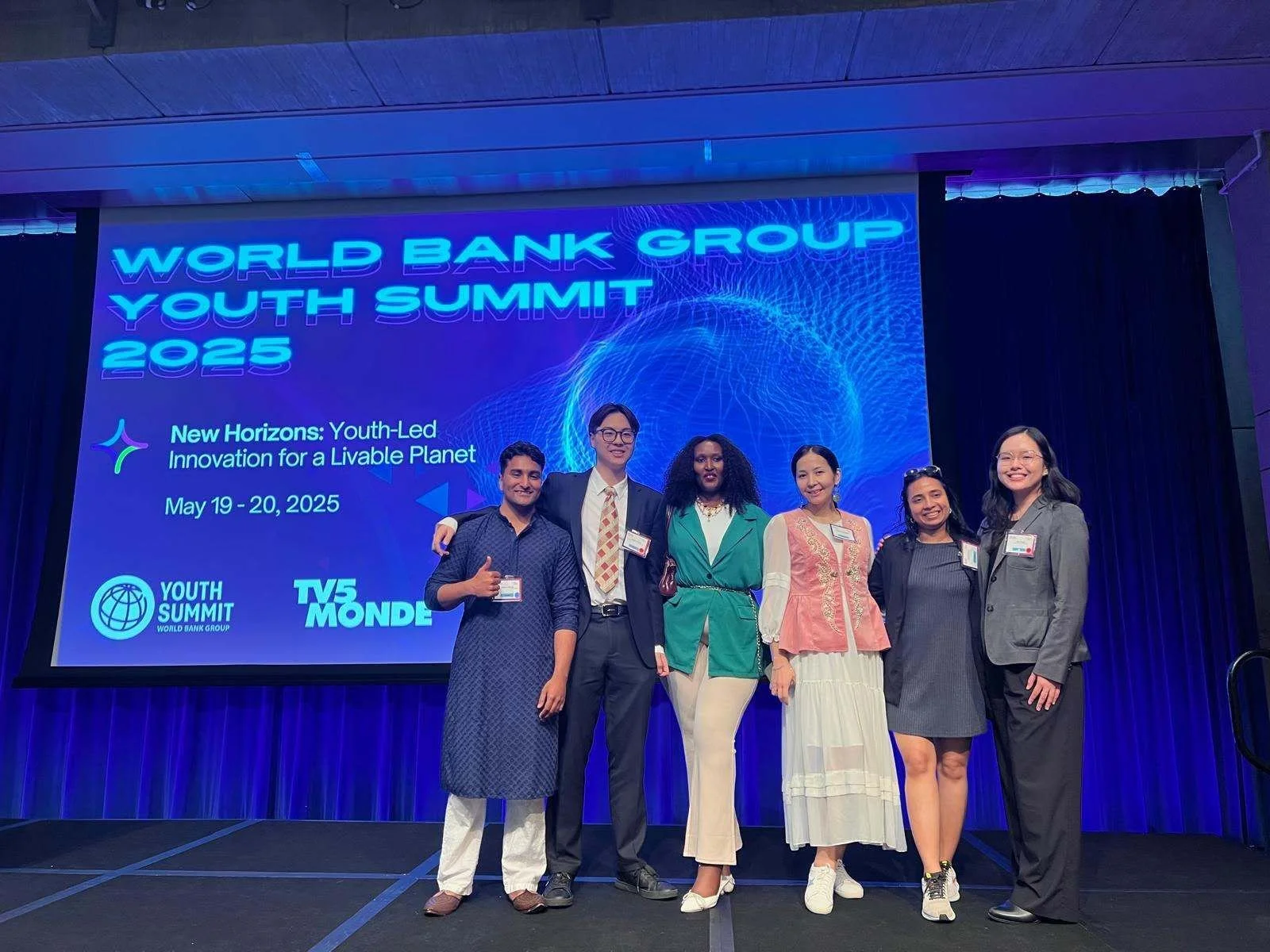From Global Stage to Local Impact: Reflections on the World Bank Group Youth Summit 2025
By Zonglin Zheng, SEESALT Senior Consultant
So three months ago, I found myself in Washington D.C. at the World Bank Group Youth Summit, and honestly? I wasn't sure what to expect. These big international conferences can sometimes feel like a lot of talk and not much action. But this one was different.
The Real Challenge
Our team got thrown into this case challenge about helping creative small businesses in the Caribbean. At first, I thought "okay, another hypothetical exercise." But as we dug deeper, we realized we were talking about real people—musicians in Jamaica struggling to get their music heard globally, designers in Barbados who couldn't access the tools they needed, filmmakers in Trinidad who had amazing stories but no way to reach international audiences.
Working with my teammates Smriti, Ulzhan, Nishant, Jan, and Alice was eye-opening. We all came from completely different backgrounds, but somehow that made our solution stronger. Ulzhan brought this academic rigor that kept us grounded, Nishant had these policy insights I never would have thought of, and the whole team just clicked in a way that surprised me.
My teammates and I- We are all amazing!
What Actually Worked
Here's the thing—we didn't win because we had the fanciest presentation or used the most buzzwords. We won because we actually listened. We spent hours talking to people who knew the Caribbean creative scene, understanding their real problems, not the ones we assumed they had.
Our solution was pretty straightforward: create a platform that's part marketplace, part learning hub. Help creative entrepreneurs sell their work globally while giving them access to business training, funding connections, and mentorship. Simple concept, but the devil was in the details of making it actually useful for the people who would use it.
The Real Lessons
Being named a Top 2 Finalist was cool, don't get me wrong. But what stuck with me was how wrong I was about a lot of things going in. I thought I understood development work pretty well, but this experience humbled me in the best way possible.
Stop Assuming You Know Best: The minute we started designing solutions before really understanding the problems, we went off track. The best ideas came when we shut up and listened.
Diverse Teams Actually Work: I know it sounds cliché, but having people from different countries, backgrounds, and ways of thinking made our solution way better than anything I could have come up with alone.
Young People Have Real Ideas: Sometimes these summits treat young people like we're just there to learn from the grown-ups. But our solutions were taken seriously because they were actually good, not because we were cute kids with potential.
Back to the Real Work
When I got back and started working more with SEESALT's Development Toolbox, everything made more sense. All those frameworks and tools we collect—they only work when you use them with the same mindset we had in D.C. You can't just copy-paste a methodology and expect it to work. You have to adapt it, test it, and be ready to change course when the community tells you it's not working.
The comments I got from people like Ulzhan, saying that meeting young people like me gives her hope for the future—that hit me hard. Not because it was flattering, but because it reminded me that this work actually matters. The solutions we come up with today affect real people's lives tomorrow.
What's Next
I'm still processing everything I learned, honestly. But one thing is clear: the best development work happens when you combine global knowledge with local wisdom, and when you trust that people know what they need—they just need the right tools and support to make it happen.
The Caribbean creative economy challenge taught me that innovation isn't about having the newest technology or the biggest budget. It's about connecting the dots between what exists and what's possible, and making sure the people who will benefit are the ones driving the process.
Every time I look at our toolbox now, I think about those creative entrepreneurs we were trying to help. Would this tool actually be useful to them? Would they understand it? Would it solve a real problem they have? If the answer is no, then we need to do better.
If you've been to one of these summits or worked on similar challenges, I'd love to hear what you learned. The real stuff, not the official takeaways.
#WorldBankYouthSummit #WBGYouthSummit #YouthInnovation #DevelopmentConsulting #CaribbeanDevelopment #SEESALT


